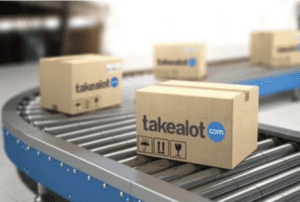Competition Commission recommends massive changes for Takealot, Google, and Uber Eats in South Africa

The Competition Commission’s Online Platforms Market Inquiry has published a provisional report with recommendations that could have severe ramifications for various online platforms in South Africa — including Takealot, Google Search, Airbnb, and Uber Eats.
The inquiry has been gathering evidence and holding public and in-camera hearings over the past 14 months focused on online intermediation platforms in the ecommerce, app stores, travel and accommodation, food delivery platforms, and online classifieds business.
The aim was to identify market features that adversely affect competition amongst these platforms and businesses using them.
It also considered the participation of small-to-medium enterprises (SMEs) and historically disadvantaged persons (HDPs).
The leading platforms identified by the inquiry were as follows:
- Apple App Store
- Google Play Store
- Takealot
- Booking.com
- Airbnb
- Mr Delivery
- Uber Eats
- Property24
- Private Property
- AutoTrader
- Cars.co.za
- Google Search — including its specialist search units such as Google Shopping and Google Travel
The inquiry has provisionally found that Google Search plays an important role in directing consumers to the different platforms, meaning it shapes platform competition.
It provisionally ruled the prevalence of paid ads at the top of Google’s search results had inadequate identifiers to confirm that they were advertising.
This, the inquiry has argued, raised platform customer acquisition costs and favoured large, often global, platforms.
Furthermore, the preferential placement of Google’s own specialist search units also distorted competition in the search giant’s favour.
“The Inquiry provisionally recommends that paid results are prominently labelled as advertising with borders and shading to be clearer to consumers and that the top of the page is reserved for organic, or natural, search results based on relevance only, uninfluenced by payments,” it said.
It also recommended that Google allow market participants to compete for prominence in its search results by having their own specialist search units, with no guaranteed positions for Google’s search units.
In addition, it was exploring whether Google Search must stop being the default search engine on mobile devices in South Africa.
Editorial credit: BongkarnGraphic / Shutterstock.com
Google was also a target for its role in the app store business.
The inquiry provisionally found there was no effective competition for the fees charged to app developers with in-app payments, resulting in high costs and app prices.
“The inquiry’s provisional recommendation is that apps should be able to steer consumers to external web-based payment options, or alternatively, a maximum cap is placed on application store commission fees,” it stated.
Another significant finding was that price parity clauses in travel & accommodation, ecommerce, and food delivery must be removed.
These hinder competition and create dependency, the Commission stated.
“Wide price parity clauses prevent businesses from offering lower prices on other platforms and narrow parity prevents businesses from offering lower prices on their own direct online channel,” the inquiry said.
In property classifieds and food delivery, new entrants and local delivery platforms face challenges signing up large national businesses, undermining their ability to compete.
The inquiry recommended that large estate agencies divest their stake in Private Property and that there must be interoperability of listings on the leading platforms to support entrants.
The inquiry also said food delivery apps used a business model with substantial eater promotions alongside high restaurant commission fees, resulting in large surcharges on menu items.
These are not transparent to consumers and distorted competition with local delivery options, the inquiry found.
“The inquiry provisionally recommends greater transparency on either the menu surcharge or the share taken by the delivery platforms,” it said.
It also called for national restaurant chains to stop preventing their franchisees from listing on local delivery platforms.
National delivery platforms must also end any incentives to steer volumes their way.
The inquiry further found there was a tendency among all platforms to sell top-ranking search positions to businesses which were not the most relevant to the consumer, constituting a form of advertising that was not transparent.
“This impacts on consumer choice and competition, especially for SMEs that cannot spend as much as large businesses,” the inquiry said.
“The inquiry recommends that advertising is clearly displayed as such and the top results are reserved for organic (or natural) search results.”
It said there were “extreme levels” of fee discrimination against SMEs in online classifieds, food delivery and, to a lesser extent, travel and accommodation.
This hinders their participation with no coherent justification, the inquiry found.
“The inquiry provisionally recommends that a maximum cap is placed on the fee differentials between large and small businesses, potentially at 10-15%.”
“In food delivery, it is recommended that more equitable treatment also occurs in terms of marketing commitments made in exchange for lower commission fees.”
One particular recommendation could have a major impact on Takealot’s business model.
The inquiry found a conflict of interest in operating a marketplace for third-party sellers and selling your own retail products.
It argued this could result in certain self-preferencing conduct such as product gating, retail buyers being given access to third-party data about successful products, and preferential display ads and promotions.
“The lack of a speedy resolution process also adds to the costs of sellers,” the inquiry said.
It recommended an internal structural separation of retail from the marketplace to implement equitable and competitively neutral processes.
The inquiry also found that South African apps faced discoverability challenges when competing against larger global app development companies.
In light of this, it provisionally recommended that app stores provide country-specific curation of app recommendations.
They should also provide free promotional credits to local app developers.
On the participation of historically disadvantaged people, the inquiry found that the digital economy is much less transformed than many traditional industries.
It said there are considerably more challenges resulting from historical disadvantages, especially for funding and support.
“The inquiry recommends specific commitments on HDP mandates from private investors and for government to channel funds for HDP digital entrepreneurs through mandates to the venture capital sector along with requirements for transformation of the sector,” it said.
“As businesses on platforms, the same lack of assets and funding hinder HDP businesses onboarding and exploiting the opportunities provided by platforms.”
“The inquiry’s provisional recommendation is that all leading platforms provide HDP businesses personalised onboarding, a waiver on onboarding costs and fees, free promotional credits, fees that are no higher than the best placed, and the opportunity for consumers to discover HDP businesses on the platform.”
Finally, the inquiry provisionally recommended that either guidelines or regulations be considered to address new leading platforms in established or new categories in future.
Public comment period
The inquiry will release another version of the Main Report in the next few weeks once over-broad claims for confidentiality have been resolved.
Members of the public and impacted stakeholders have been given six weeks to make submissions to the inquiry on the provisional findings and recommendations.
All submissions should be sent to [email protected] by close of business on 24 August 2022 and should be substantiated with evidence, where relevant.
The Commission will consider these submissions and may change its views on its current findings before publishing its final report by November 2022.
Share:



